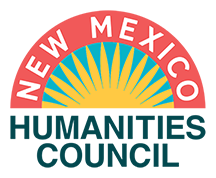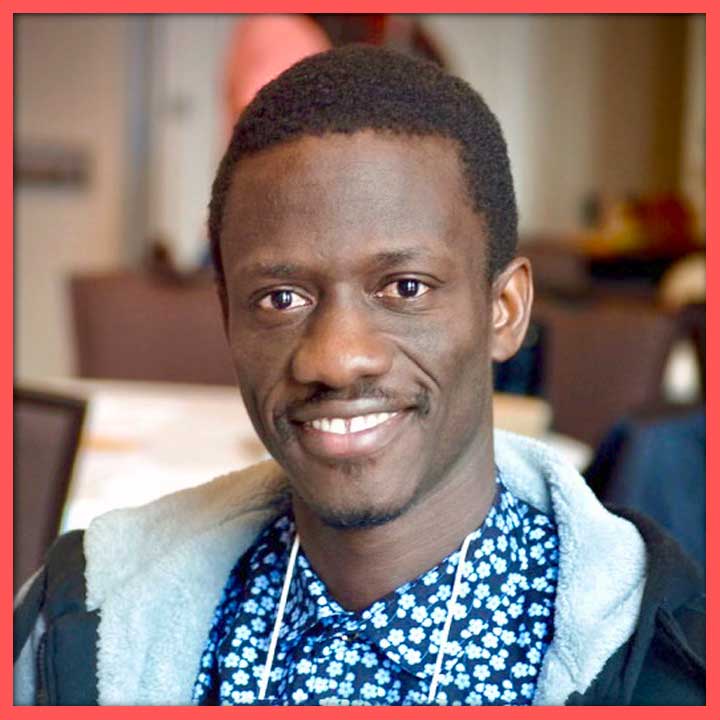
SPOTLIGHT ON A NATIONAL HISTORY DAY JUDGE
WHO: NHD Judge Kwesi Felix Boafo
WHAT: Spotlight feature
WHERE: New Mexico
CONTACT: New Mexico History Day State Coordinator, Stephanie Wilson
SHARE:
FROM GHANA TO NEW MEXICO’S HISTORY DAY, NHD JUDGE KWESI FELIX BOAFO SHARES LESSONS LEARNED AND NAVIGATES HISTORY’S PIVOTAL MOMENTS
History Day judges play an important role in the success of our History Day program, serving not only as evaluators of student projects but also as mentors and educators who inspire the next generation of young historians. They are fundamental to the program, offering their time and knowledge to mentor and provide constructive feedback to students participating in the program. This support not only helps students refine and improve their history projects but also fosters a deeper understanding and appreciation for historical research and storytelling. Their constructive feedback, and encouragement are essential in helping students refine their research, analytical, and presentation skills. It’s through this collaborative effort between volunteers and participants that History Day continues to be a transformative experience for young historians.
NMHC recently had the opportunity to connect with History Day judge Kwesi Felix Boafo, whose unique journey and experience shine a light on the role volunteers play in this program. In this interview, we explore the challenges, insights, and rewards that come with navigating young historians through their explorations of pivotal moments in history.
NMHC: Tell us a little bit about yourself and your background in history or education?
I am currently a biology graduate student at Eastern New Mexico University. Before coming to the United States of America for graduate studies, I used to work as a physiotherapy assistant for two years after my college degree. Although I have been a biological science student since my college years, I have always had a strong interest in history and culture. I remember taking part in cultural events in my junior high school and primary school. I had taken some courses outside my biology background, such as sociology and African Studies, in my college years. These courses have exposed me to historical events in Africa and other parts of the world. I have also taught myself history by reading old newspapers and old magazines from the archives of a small library in my hometown, Tsito, in the Volta region of Ghana. I can also say I learned from the older generations around me. I remember they used to tell me stories about Osama Bin Laden, World War II, the Independence of Ghana, and the colonization of Africa. I think all these have prepared me for life.
NMHC: As a first-time judge, what inspired you to volunteer for History Day?
As someone who has an interest in the history and culture of people and as a non-immigrant in the United States, I was thrilled to be part of History Day as a judge to learn from these intelligent young ones and their interesting projects. I do not believe there is any better place to learn about the history of the American people than this place or occasion. More importantly, I wanted to come and learn and have a first-hand experience of how Americans organize such a program like this and learn so that when I return to Ghana after my studies, I can introduce a few of the things I will learn back home.
NMHC: Is there a particular period or event in history that fascinates you more than others? Why?
There are so many fascinating periods in history, but the most fascinating one to me is the global effects of the World Wars, particularly World War II. The war made me see the rise and collapse of totalitarian governments, technological developments in the form of war aircraft, and the individual tales of bravery of soldiers, sacrifice, and resilience of many nations — especially the people of Japan after the Hiroshima and Nagasaki bombings.
NMHC: Reflecting on your first experience as a History Day judge at the central regional contest in Albuquerque, what are some of the highlights or standout moments for you?
I had a lot of beautiful moments in the central regional contest, but my standout moment was the ingenuity displayed by these young ones in their various projects. I must confess I was amazed by the deep-thinking ability of these young ones. Should I say I have seen more than I was anticipating? I think so.
NMHC: In your opinion, what qualities make a History Day project stand out?
The things that made the History Day project unique are numerous, but my few takeaways are (a) the requirements that students place their topics in their historical context, (b) the guidance provided for the right usage of Artificial Intelligence in executing projects and (c) the integration of different perspectives into the project makes the History Day projects unique.
NMHC: How do you think participating in History Day benefits students?
I envy these young ones. If I had the opportunity to participate in a program such as this in my early years, I believe I would have been a better person than my current self. The full impact of this program cannot be underestimated. Participating in a program such as History Day is honing the creative and analytical skills of these young ones. More importantly, through this program, we are producing a history-literate generation. There is a popular saying that “If you don’t know where you’ve come from, you don’t know where you’re going.” We can confidently say that our future is secure because our children know where to go when we, the adult generations, are no more.
NMHC: What advice would you give to students preparing for History Day?
My advice for students who want to participate in History Day is to go to the National History Day website and familiarize themselves with the various resources available on the website before they start their project. The National History Day Rule Book (June 22, 2020 edition) would be of great help. Familiarizing oneself with this would help the student to know what to place and what not to put into their project. Lastly, I suggest that students start their project early. By so doing, there will be more time to correct what needs to be corrected, and this will go a long way in helping the student put together a unique project.
NMHC: What key insights or lessons did you take away from your initial judging experience?
I have learned a lot as a first-time judge, but the two most important lessons I have taken from this contest are (a) never underestimate the intelligence of young ones. I have realized that they know more than we think they know, and (b) teamwork with co-judges is what can make your work easier as a judge. I have co-judges who have more than 10 years of experience in this service. In my judging moment with my co-judges, I remembered Isaac Newton saying: “If I have seen further, it is by standing on the shoulders of giants”. Yes, I had giants around me.
NMHC: As you potentially look forward to participating as a judge at the state finals, how will you prepare differently this time around?
As I look forward to the state finals contest, I hope to take more time to go through the entries of the contestants, read my judge guidebook to familiarize myself with the judges’ guidelines more, and lastly, have a conversation with my co-judges before the contest. I believe by so doing, I would be more prepared to judge the contest than before.
NMHC: Are there any aspects of judging at the state level that you anticipate will be different or more challenging compared to the regional contest?
In human society, as you climb higher you will expect contests to become more competitive, and I am anticipating a more competitive contest in the state finals. Apart from this, I am not expecting any major difference.
NMHC: How do you hope to contribute to the student’s learning and experience at the state finals?
In the state finals contest, I will strive to familiarize myself more with the guidelines and rules of any of the categories I will be judging. Also, I hope to create a more friendly and relaxed environment for the students to feel more comfortable in expressing themselves. I hope to do my very best to avoid any topic bias tendencies and also write more constructive feedback to the contestant which will guide them in their future work.
NMHC: Can you share how this experience has impacted your perspective?
Projects for History Day usually need a great deal of study, critical source analysis and information synthesis into a cogent story. Being a judge has taught me to emphasize how important it is to teach historical analysis and research methods to pupils so they can become knowledgeable and astute readers of the past.
NMHC: Based on your experience, what advice would you offer to first-time judges who may be participating in future History Day contests?
My advice to a first-time judge will be to familiarize themselves with the judges’ guidebook well before the contest and read through the entries of the students before coming. By doing this, I can assure you that you will be 90% ready to be a good judge before the day and the rest of the 10% will come from learning from co-judges and students as the contest progresses.
NMHC: What do you wish you had known before your first-time judging?
In all honesty, I wish I had known that judging people’s work and determining the winner of a contest is such a difficult job. The difficulty came from determining winners between two good people with just tiny differences when you knew that both students deserved to win. It is such a difficult thing to do.
NMHC: Why would you recommend others to consider serving as judges for History Day or similar educational initiatives?
The experiences are great, the lessons to learn are numerous, and the friends you make from this initiative can be long-lasting. These will be my reasons for recommending this initiative to someone.
NMHC: Can you name a ‘turning point’ in history that fascinates you, and why do you think it’s important for students to study these moments?
The enactment of the Immigration and Nationality Act of 1965, popularly referred to as the Hart-Celler Act, marked a momentous shift in the history of American immigration laws. With far-reaching effects on the country’s demographic makeup, this legislation fundamentally changed U.S. immigration policy. U.S. immigration policy was mostly based on national origin quotas set by the Immigration Act of 1924 before the Immigration and Nationality Act of 1965. Immigration from Asia, Africa and Southern and Eastern Europe had been severely restricted by these quotas, which greatly favored immigrants from Western and Northern European countries. At the time, discriminatory sentiments were common, and the system was created to preserve the current racial and ethnic makeup of the United States. A preferential system centered on family reunion and the hiring of skilled workers took the place of the national origin quotas, which were eliminated by the Immigration and Nationality Act of 1965. Students engaging in this topic will help them to appreciate the population diversity of America and recognize the important contributions of various races.
NMHC: As our interview comes to a close we’d like to thank Kwesi for sharing his insights and experience with us. We also extend a heartfelt thanks to everyone who has been a part of our History Day program, volunteering in different capacities and serving as judges. Kwesi’s story is an example of the vital role volunteers play in enriching the History Day program and our young historians’ path to academic success. To learn more about the New Mexico National History Day program, please contact New Mexico State National History Day Coordinator, Stephanie Wilson at: historyday@nmhumanities.org
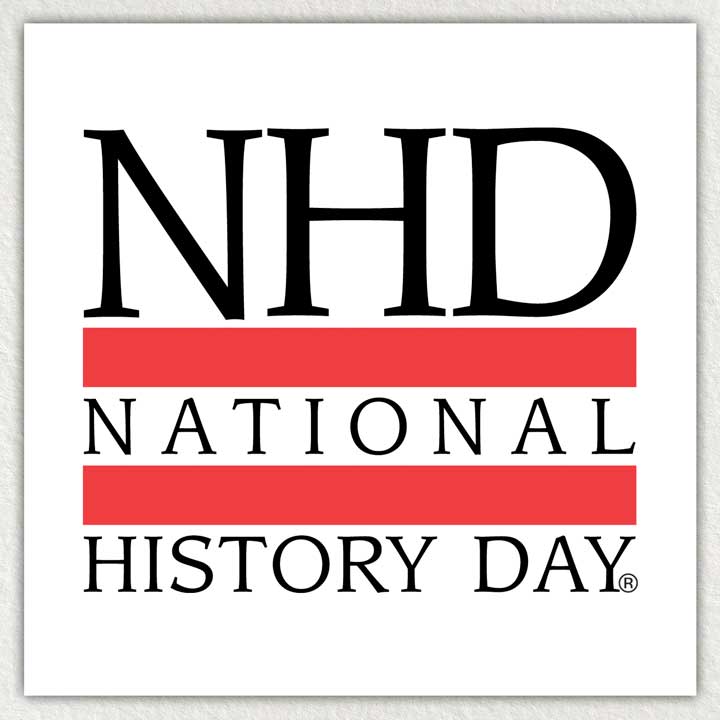
NATIONAL HISTORY DAY
EVENTS, NEWS, AND ANNOUNCEMENTS
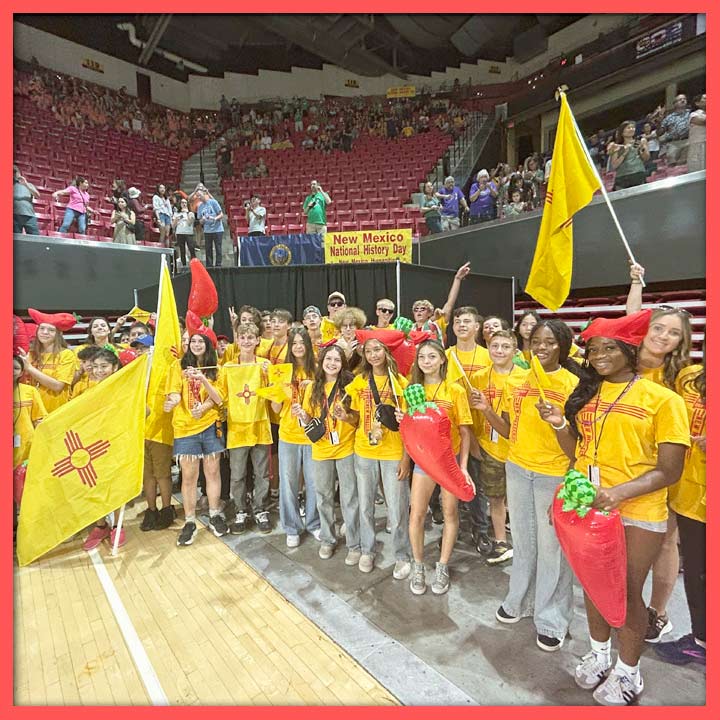
STUDENTS EARN NATIONAL HONORS AT 2025 NATIONAL HISTORY DAY® CONTEST
We’re thrilled to share that New Mexico students brought home top honors from the 2025 National History Day® (NHD) contest in College Park, Maryland! Out of approximately 3000 finalists from around the world, New Mexico students placed in the Top Ten in three national categories, and earned two…
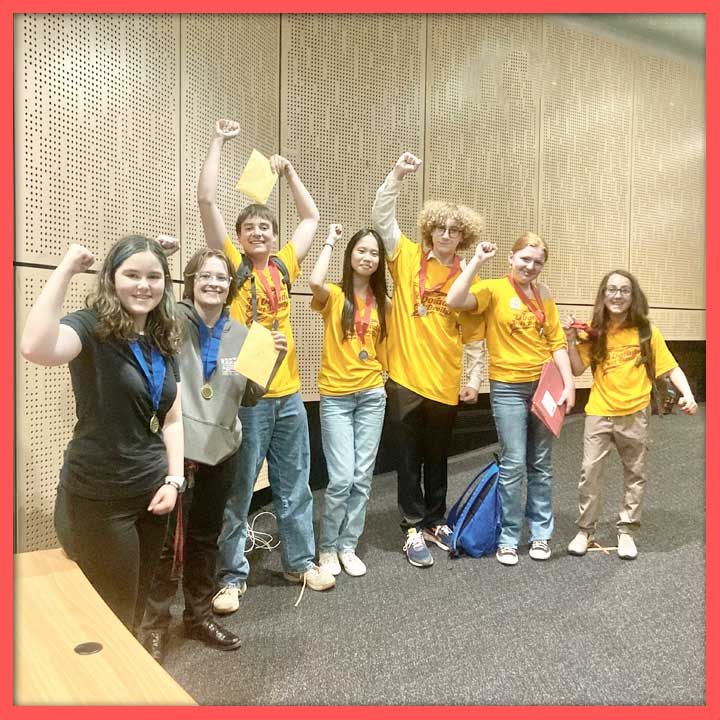
NATIONAL HISTORY DAY PERFORMANCE SHOWCASE
Out of the 200 state-winning performances entered into the National History Day Performance Showcase, one of New Mexico’s projects was selected! The junior group performance “Echoes of Fallout: Trinity, Downwinders, and New Mexico’s Health Impact” by Ramsey Klinkrodt, Greyson Morrison, Willow…
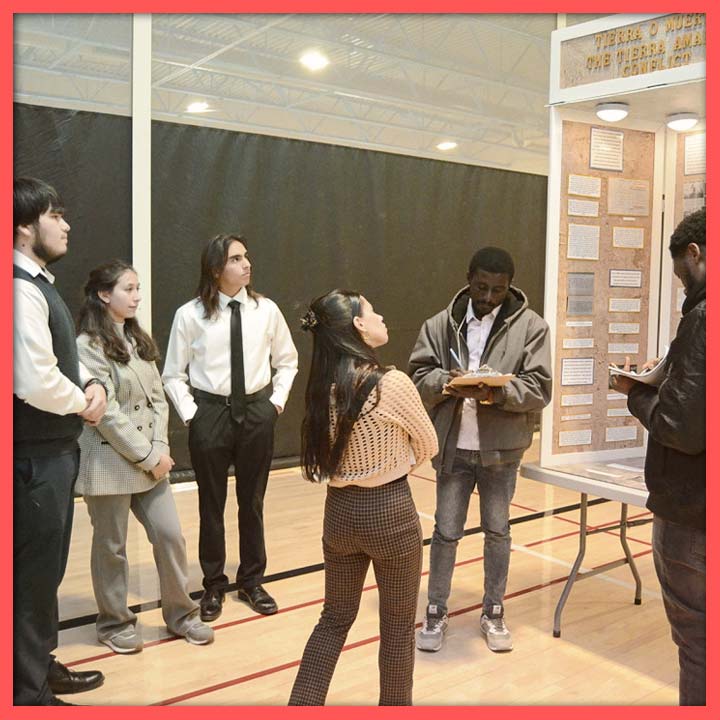
GROUP EXHIBIT “TIERRA O MUERTE: THE TIERRA AMARILLA CONFLICT” SELECTED BY THE NM HISTORY MUSEUM
Beginning in 2024, the New Mexico History Museum began selecting NHD exhibits for public display. This year, the group exhibit “Tierra o Muerte: The Tierra Amarilla Conflict” was selected by the NM History Museum as the 2025-2026 NHD exhibition for the theme “Rights and Responsibilities in History”…
SHARE:
NATIONAL HISTORY DAY
Helping student historians and their teachers study the past to inform the present and shape the future.
ABOUT NATIONAL HISTORY DAY® (NHD):
NHD is a non-profit organization based in College Park, Maryland, that seeks to improve the teaching and learning of history. The National History Day Contest was established in 1974 and currently engages more than half a million students every year in conducting original research on historical topics of interest. Students present their research as a documentary, exhibit, paper, performance, or website. Projects compete first at the local and affiliate levels, where the top entries are invited to the National Contest at the University of Maryland at College Park. NHD is sponsored in part by, HISTORY®, the National Endowment for the Humanities, the National Park Service, Southwest Airlines, the Crown Family Foundation, The Better Angels Society, the Pritzker Military Museum and Library, and the Diana Davis Spencer Foundation. For more information, visit NHD.org.
ABOUT NATIONAL HISTORY DAY® IN NEW MEXICO:
History Day in New Mexico is open to elementary, middle, and high school students statewide. The program is organized and sponsored by the New Mexico Humanities Council. NMHC offers online and in-person professional development for teachers as well as student events.
